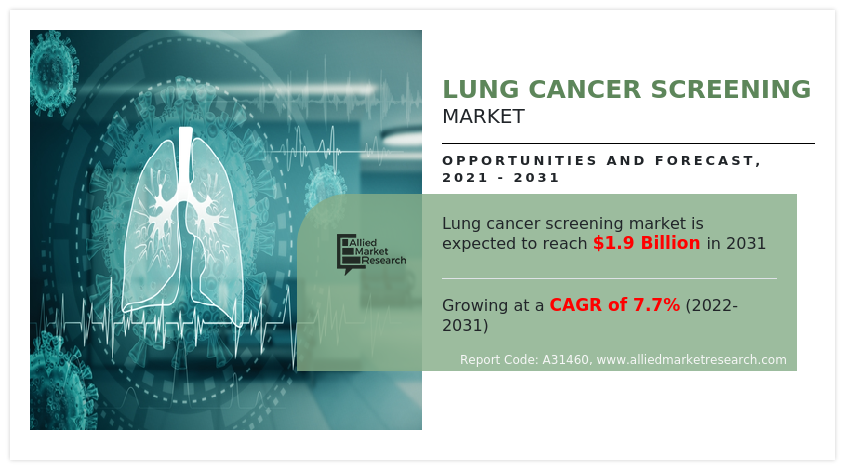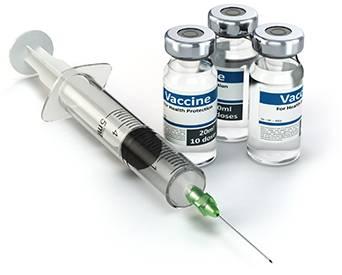What is Lung Cancer Screening?
Lung cancer screening is a medical test performed to detect lung cancer in individuals who are at high risk for the disease but have no symptoms. This screening typically involves a low-dose computed tomography (LDCT) scan of the chest, which can detect small lung tumors that are not yet causing symptoms. Screening is recommended for current or former heavy smokers between the ages of 55 and 80, who have smoked for at least 30 pack-years and who have quit smoking within the past 15 years. The goal of lung cancer screening is to find the disease early, when it is most treatable, and to reduce the number of deaths from lung cancer.
Lung Cancer Screening Market
The Lung Cancer Screening Market refers to the market for medical products and services related to the screening and early detection of lung cancer. This market includes products such as low-dose computed tomography (LDCT) machines, software for image analysis, and molecular imaging techniques. The market also includes services such as screening tests and interpretation of test results by healthcare professionals.
The lung cancer screening market is driven by the increasing incidence of lung cancer, the rise in the number of high-risk individuals, and the growing awareness of the benefits of early detection. Technological advancements, increased adoption of non-invasive techniques, integration of AI and machine learning, increased funding and support, and rising awareness are among the trends expected to drive the growth of the market in the coming years.
The global lung cancer screening market is expected to grow significantly in the coming years, with the increasing incidence of lung cancer and the growing awareness of the benefits of early detection. This growth is expected to provide opportunities for companies in the medical technology and healthcare industries to expand their businesses and improve their bottom lines.
Request Report Sample – https://www.alliedmarketresearch.com/request-sample/31910
What are the upcoming trends of Lung Cancer Screening Market in the world?
The following are some of the upcoming trends in the Lung Cancer Screening Market:
- Technological advancements: The development of new and advanced imaging technologies such as low-dose computed tomography (LDCT) scans and advanced software for image analysis are expected to drive the growth of the lung cancer screening market.
- Increased adoption of non-invasive techniques: The increasing adoption of non-invasive screening techniques such as CT scans and molecular imaging is expected to drive market growth.
- Integration of AI and machine learning: The integration of artificial intelligence (AI) and machine learning into lung cancer screening is expected to improve accuracy and efficiency of the screening process.
- Increased funding and support: The increasing government funding and support for lung cancer screening programs is expected to drive market growth.
- Rising awareness: The growing awareness of the benefits of early detection and the importance of regular screening is expected to drive the growth of the lung cancer screening market.
These trends are expected to shape the future of the lung cancer screening market and drive its growth in the coming years.
How Lung Cancer Screening is making their way Hospitals?
Lung cancer screening is making its way into hospitals through a combination of government initiatives, insurance coverage, and the growing awareness of the benefits of early detection. Here are some of the ways lung cancer screening is being integrated into hospitals:
- Government initiatives: Government initiatives such as the U.S. Preventive Services Task Force (USPSTF) and the National Lung Screening Trial (NLST) have played a major role in promoting the use of lung cancer screening in hospitals.
- Insurance coverage: Many insurance companies now cover the cost of lung cancer screening, which has helped to increase its adoption in hospitals.
- Clinical protocols: Hospitals are incorporating lung cancer screening into their clinical protocols, making it easier for healthcare providers to order and perform the test.
- Partnership with screening providers: Hospitals are partnering with screening providers to offer lung cancer screening services to their patients.
- Outreach and education: Hospitals are promoting the benefits of lung cancer screening through outreach and education programs, which has helped to raise awareness among the public.
These efforts have helped to make lung cancer screening a standard part of care in many hospitals, which has led to earlier detection and improved outcomes for patients.
The following are some of the leading market players in the global Lung Cancer Screening Market:
- Koninklijke Philips N.V.
- General Electric Company
- Siemens Healthineers
- Canon Inc.
- Hitachi Ltd.
- Fujifilm Holdings Corporation
- Shimadzu Corporation
- Hologic, Inc.
- Cephasonics, Inc.
- Zonare Medical Systems, Inc.



